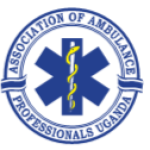Terms of Reference for Standardization of 10-Day Prehospital Emergency Care Training Course
Standardisation of the course outline and materials for a 10-day prehospital emergency Care Training course.
Background
AAPU is a registered private sector membership association that brings together all pre-hospital Emergency Medical Services (EMS) providers in Uganda. AAPU represents and serves EMS practitioners through advocacy, education, research, and training programs, and support to emergency responses in times of disaster. The state of emergency medical care services survey conducted in 2019 as well as the emergency care cost analysis study conducted by MAKSPH in 2021 revealed a significant gap in the knowledge of pre-hospital medical care provision among the health care workers. Based upon the findings of the survey, the association has been implementing a 10-Day Prehospital Emergency Care Training program across the country. To enhance its effectiveness and credibility, this consultancy seeks to formalize and standardise the course based on best practices and standards.
Objectives
The main objective is to standardize the course for the current 10-day training program to equip EMS providers with essential knowledge and practical skills to manage pre-hospital emergencies effectively and develop a complete and standardized training package suitable for national and regional rollout.
Scope of Work
- Review global short courses in pre-hospital care including courses like (ITLS, ALS, etc.) to identify best practices, essential competencies, and adaptable frameworks.
- Analyze and consolidate existing pre-hospital EMS training materials.
- Design a standardized, competency-based short course outline aligned with WHO and TVET guidelines.
- Define clear learning outcomes and competencies for each module including relevant teaching methodologies such as theoretical content, skills stations and scenarios.
- Develop assessment tools (written and practical).
- Develop a comprehensive instructor’s teaching guide for a short course, including all teaching materials.
- Develop slide decks for each module.
- Develop a student guide or handbook with summaries, key concepts, and practice exercises.
- Facilitate stakeholder consultations including:
– Ministry of Health
– Emergency medical providers
– Ambulance companies
– NGOs & Humanitarian organizations
– Training institutions - Incorporate feedback and finalize the curriculum.
Methodology
The consultant will use the following methodology.
- Literature review of EMS short-courses and WHO guidelines
- Stakeholder mapping, analysis and engagement
- Consultative meetings and focus group discussions
- Validation workshops with key stakeholders
Deliverables
- Inception report with work plan, methodology and clear timelines
- Comprehensive review report of existing training content
- Draft course outline with modules, learning objectives, content, assessments
- Stakeholder engagement report
- Final standardized course materials
- Instructor’s teaching guide for the full course
- Student guide or handbook
Timelines
- Week 1–2: Literature review and inception report
- Week 3–5: First draft of course content, teaching materials and assessment tools development
- Week 6–7: Stakeholder consultation meetings
- Week 8–9: Course material finalization
- Week 10: Validation and submission of final documents
- TBA: Presentation of developed content at required ministry and or stakeholder meetings
Academic Qualifications and Experience
The consultant should have:
- Advanced degree in Emergency Medicine, Paramedicine, Medical Education, or related field.
- Demonstrated expertise in pre-hospital emergency care and training.
- Experience developing or implementing recognized short courses (TLS, ALS, etc.).
- Proven ability to develop curricula and instructional materials.
- Strong understanding of contextual realities of EMS in low- and middle-income countries, particularly Africa.
Skills and Competencies
The consultant should have:
- Ability to work under minimum supervision.
- Excellent communication skills.
- PowerPoint and teaching material design skills.
- Enthusiasm and integrity.
- Excellent interpersonal and professional skills in interacting with partners.
- Skills in facilitation of stakeholder engagement.
- Excellent knowledge of the English language, vocabulary and grammar.
- Excellent eye for professional formatting.
- Evidence of having undertaken similar assignments before.
Resources and Support
- Access to previous course materials
- Hosting of the stakeholder engagement
- Logistical support for workshops
Application process:
Interested candidates shall send a technical and financial proposal on or before 27th June 2025 to [email protected] copied to [email protected]
